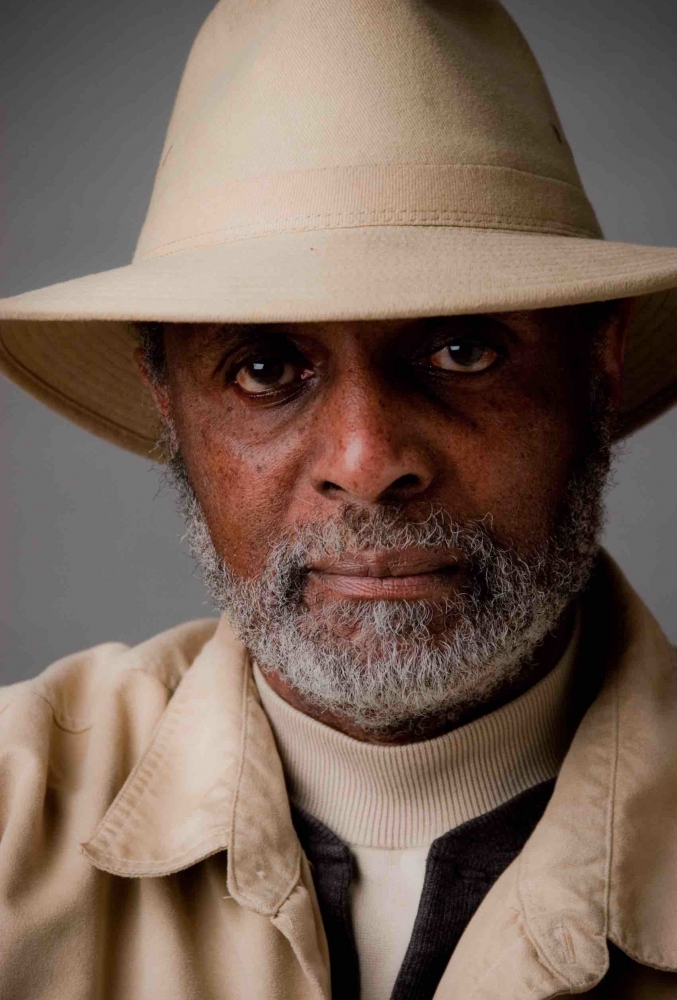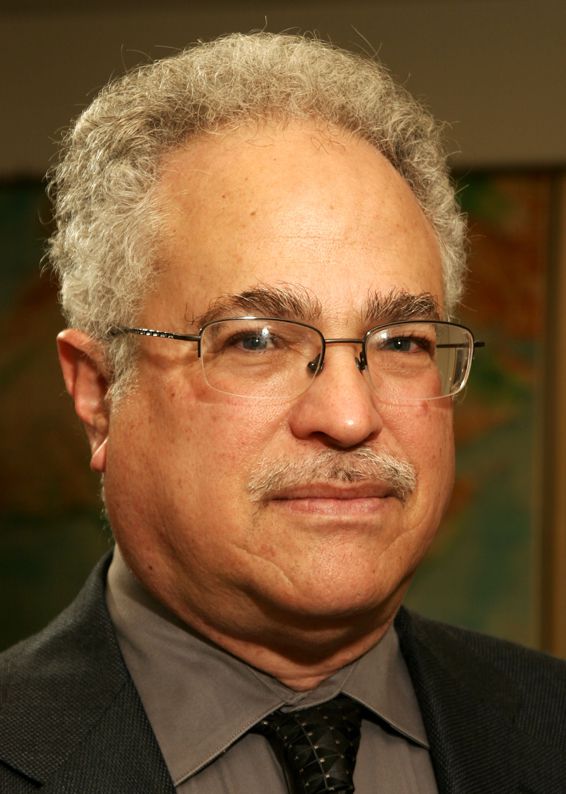
‘Collective Intelligence’

As a scholar at UC Santa Barbara, the late Cedric Robinson created new knowledge and understanding that crossed racial and ethnic boundaries. As a professor of Black Studies, he influenced a generation of students who carry the torch and shine a scholarly light on our collective history and our relationships with one another.
“Professor Robinson was a brilliant and innovative thinker who recognized that the intelligence of individuals emanates from their contact with others,” said George Lipsitz, a professor of Black studies and of sociology at UCSB. “There are no monologues in the world of ideas: everyone enters a dialogue already in progress.”
Lipsitz will give a lecture titled “A Collective Intelligence Gathered from Struggle — Cedric Robinson and the Black Radical Tradition” at 4 p.m. Tuesday, Jan. 17, in the Pacific View Room, on the library's eighth floor.
Graduate Student/Postdoctoral Seminar
The talk, part of the library’s Pacific View lecture series, will follow the Cedric Robinson Graduate Student/Postdoctoral Seminar. Focusing on topics related to graduate study in Black Studies, the seminar will feature graduate and postdoctoral students mentored by Robinson, who died in June. Among the participants are Tiffany Willoughby-Herard, an associate professor in UC Irvine’s African American Studies Program; Damien Sojoyner, assistant professor of anthropology at UC Irvine; H.L.T. Quan, an associate professor at Arizona State University’s School of Social Transformation; Ismael Illescas, a UC Santa Cruz doctoral candidate in Latin American and Latino studies; and Jorge Ramirez, a UC San Diego doctoral candidate in history.
In addition to topics related to graduate studies Black Studies, these former students of Robinson will discuss the role of faculty mentors in advancing the careers of graduate students in Black Studies.
The seminar, conceived of by Elizabeth Robinson, Cedric Robinson’s wife and formerly the advisor for the campus radio station, KCSB, will begin at noon in the Alumni Hall of Mosher Alumni House. The symposium and lecture are free and open to the public.
“Cedric Robinson was a historian, a political scientist and an activist,” said Jeffrey Stewart, a professor of Black Studies and one of the event organizers. “He shaped the culture of our campus not only from the standpoint of his scholarship, but also through his service and his teaching. He argued that research, teaching and service are an obligation for young professors as intellectual citizens, and to make a difference wherever they teach.”
The Black Radical Tradition
Said Lipsitz, “In his imaginative, insightful and infinitely generative writings, Professor Robinson identified, explained and analyzed a way of knowing and a way of being that he termed ‘the Black Radical Tradition.’ His research revealed how African people survived the ravages of slavery in the United States, preserved their dignity and humanity despite the humiliating subordination and exploitation of the of the Jim Crow era, and emerged as the nation’s most imaginative and inventors of new democratic practices and institutions that benefited everyone.”
In his talk, Lipsitz will discuss the origins and evolution of the Black Radical Tradition and emphasize its relevance for the current moment in history. “The Black Radical Tradition entails acts of alchemy that turn the world upside down,” he said. “It contains an inventory of tools designed to turn poison into medicine, humiliation into honor, to make a way where there appears to be no way.
“Confronted with the ultimate in political evil manifested in white supremacy’s cruel acts of dehumanization,” he continued, “Black people conjured into existence forms of politics, culture and religion that cohered around an insistent re-humanization of themselves and others. They oppose the hierarchical, racist and sexist ‘humanity’ of the enlightenment to envision and enact a new understanding of the ‘human’ based on mutual respect, accountability and dignity.”
A Commitment to Changing the World
Speaking of the symposium and lecture, which organizers hope lay the groundwork for an annual Cedric Robinson lectureship, Leila Rupp, interim dean of social sciences in UCSB’s College of Letters and Science, said, “I’m delighted the Department of Black Studies has organized these events to honor the late Cedric Robinson, whose scholarship, teaching, and activism did so much for UC Santa Barbara. He was the kind of public intellectual the Division of Social Sciences treasures.”
Indeed, said Lipsitz, Robinson “showed how the ideas, aspirations and practices of ordinary people sharing a linked fate produced indispensable tools for confronting and dismantling exploitation and subordination. He was a product of the processes he described as well, a scholar always able to feel the pulse of the people and identify ideas as more than the invention of isolated individuals, as a collective intelligence honed through struggle.”
According to Lipsitz, one of Robinson’s greatest gifts was his example as a scholar. “He was deeply committed to changing the world he analyzed and described. He was not content to produce ever more eloquent or ever more indignant descriptions of other people’s suffering. As a scholar and activist, he worked to educate us about the forces by which we are actually governed, to expose the wreckage created by what he called ‘the perverse assumptions and contradictions’ of our society and to participate in collective movements for social change.
“Perhaps most important, he remained indifferent to the prestige and reward structures of this society and instead remained true to a higher calling,” Lipsitz said.



